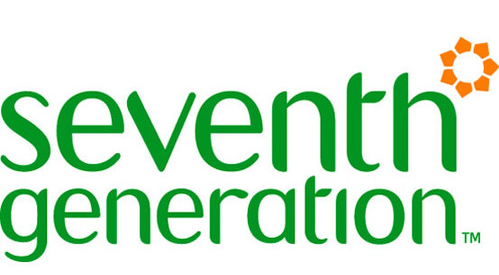Seventh Generation Calls on Congress for Meaningful Chemical Reform
More than 3,000 Businesses Unite in the Belief that Meaningful Reform Can Spur Economic Growth While Protecting Families

BURLINGTON, VT, March 19 2015 /3BL Media / – Seventh Generation, the nation’s leading brand of non-toxic and renewable bio-based household, baby and personal care solutions, calls on Congress to strengthen the country’s outdated chemical policy.
Seventh Generation, along with the American Sustainable Business Council, are founding members of Companies for Safer Chemicals, a group of the country’s leading consumer brands –3,000 businesses strong – joining together to press Congress to modernize the nation's ineffective chemical safety laws. Strong lobbying by other industry groups has given policymakers the impression that business is monolithic in its support for weak legislation. Companies for Safer Chemicals makes a business argument for strong reforms that support the industry innovating safer and cleaner products.
“When Members of Congress talk about regulating industry, too often they forget about small and medium sized businesses that have embraced good business practices. Seventh Generation stands as proof that cost-effective products that not only meet consumer demands, but are increasingly demanded by consumers, can be formulated and manufactured without chemicals of concern,” said Ashley Orgain, Seventh Generation’s manager of mission advocacy and outreach at a Senate press conference on Tuesday.
Seventh Generation and the coalition have serious reservations about the current version of the Frank R. Lautenberg Chemical Safety for the 21st Century Act (FLCSA). As the debate with FLCSA proceeds, Seventh Generation stands with our coalition of more than 3,000 business partners as well as our allies in the consumer protection and environmental health community to call for the following limited improvements to FLCSA:
- Preemption
We are deeply concerned about the timing of preemption for “high priority” chemicals. We believe that states should be preempted from regulating a dangerous chemical until it acts on regulating that chemical. Experience has shown us that chemical manufacturers have shown no reluctance to pursue dilatory legal or legislative remedies to fight adverse safety determinations; and we are certain that they would continue to do so if the EPA designated a lucrative chemical “high priority.” Waiting for years for those determinations to be litigated would leave a serious regulatory vacuum – one that states could fill by acting to protect the public. Likewise, we see no reason that states should be prohibited from co-enforcing federal safety standards.
- “Low Priority” Loophole
Under the bill, chemicals that are determined by the EPA to be “Low Priority” must be “likely to meet” a safety standard without a new assessment, and they are then considered safe ad infinitum. We believe that “likely to meet” is a needlessly ambiguous term that will lead to regulatory confusion and, inevitably, litigation while the determination is being made. However, the bill notably prohibits legal challenges after the determination is made, meaning that chemical manufacturers have every incentive to use any means to pursue the “low priority” designation.
- Burdens on EPA’s Regulation of Consumer Products
We are deeply concerned that, after EPA makes a determination that a chemical is unsafe, it would have to conduct a time-consuming and burdensome cost benefit analysis of the “quantifiable and nonquantifiable” costs of each proposed regulatory action and possible alternatives. As you know, single chemicals may be used in hundreds of products; the EPA should not have to conduct a separate assessment of each product containing that chemical. We strongly believe that, once EPA makes its unsafe determination, the EPA should have the flexibility to quickly act to protect consumers on all products containing that chemical.
Businesses would benefit from these improvements because: 1) it would reduce the costs and risks associated with managing chemicals in products and across supply chains; 2) it would lower expenses from chemically-induced illness and enhance productivity among our employees; 3) it would improve transparency and communication throughout the supply chain, leading to increased confidence for downstream users; 4) along those lines, it would help us identify chemicals of high concern to human health or the environment so we can remove them from our supply chain and avoid them in our products; and 5) perhaps most importantly, it would increase trust among consumers – and our employees, communities, and investors.
We are hopeful that we can work with members of the Senate Environment and Public Works Committee to address these changes to the current iteration of FLCSA so we can best protect the public from toxic chemicals.
About Seventh Generation
Established in 1988, in Burlington, Vermont, Seventh Generation is one of the nation's leading brands of household and personal care products. The company lives its commitment to "care today for seven generations of tomorrows," with products formulated to provide mindful solutions for the air, surfaces, fabrics, pets and people within your home -- and for the community and environment outside of it. A pioneer in corporate responsibility, Seventh Generation continually evaluates ways to reduce its environmental impact, increase performance and safety, and create a more sustainable supply chain. To learn more about Seventh Generation products and business practices, locate a retailer in your area, or review Seventh Generation's Corporate Consciousness Report, visit www.seventhgeneration.com.

